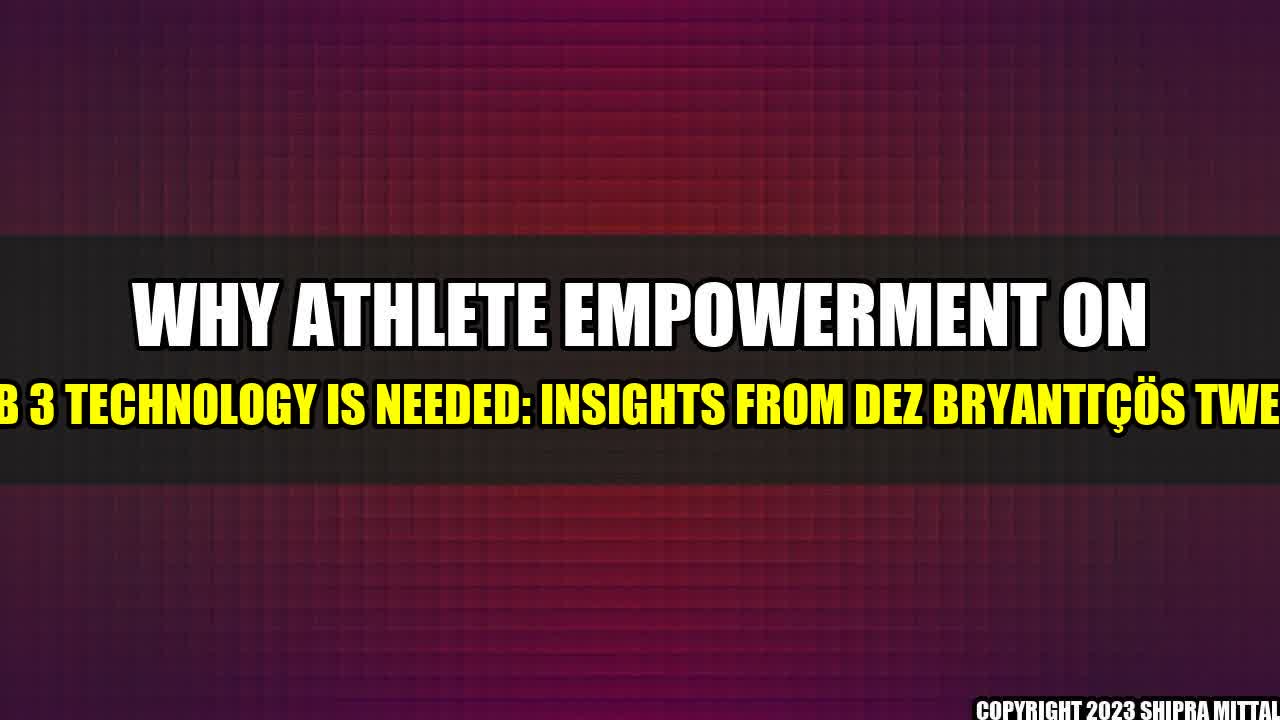Introduction
Dez Bryant, the former NFL wide receiver, took to Twitter with a bold statement: "Unfortunately no Athlete empowerment utilizing web 3 technology!...." His tweet shed light on an important issue that many athletes face. While social media has provided them with a platform to engage with fans and brands, they often have little control over their digital identity and the data generated from their interactions. This article explores why athlete empowerment on Web 3 technology is necessary and showcases real-life examples of companies leading this movement.
The Need for Athlete Empowerment on Web 3
In the current technology landscape, athletes have limited control over their digital identity and the data generated from their online interactions. Social media platforms, like Twitter, have become the primary means for athletes to engage with their fans and build their personal brand. However, these platforms are controlled by third-party companies, and athletes have little say in how their data is used or monetized.
Web 3 technology, or the decentralized web, offers a solution to this problem. With Web 3, athletes can own and control their digital identity and the data generated from their interactions. This technology removes the middlemen (e.g., social media platforms, agents, and brand/marketing managers) and puts athletes in charge of their destiny. By leveraging the power of Web 3, athletes can create authentic connections with their fans, monetize their data and brand, and take their careers to new heights.
Real-Life Examples from Companies Leading the Movement
Several companies are leading the charge in empowering athletes with Web 3 technology. For instance, Socios has developed a fan engagement platform that enables fans to buy and trade "fan tokens" that grant them exclusive access to their favorite teams and players. The platform gives athletes the ability to increase their fan base, generate revenue, and participate in club decision-making processes.
Another example is Decenturion, a decentralized state that offers a community-driven ecosystem for entrepreneurs and investors. Decenturion has partnered with several athletes, including boxing legend Floyd Mayweather, to create customized digital assets or "smart coins" that represent their brands. The smart coins are used to purchase exclusive merchandise, access special events, and participate in loyalty programs curated by the athletes.
Finally, OpenSea, a leading NFT marketplace, has announced a partnership with the NBA Players Association to create NFTs (non-fungible tokens) of all NBA roster players. The partnership allows athletes to monetize their on-court performances and personal brands through the sale of these digital collectibles. The NFTs are verified on the blockchain, ensuring authenticity and traceability.
Critical Comments on the Benefits of Web 3 for Athlete Empowerment
- Authenticity: Web 3 technology allows athletes to engage more authentically with their fans, building stronger connections and creating a sense of community.
- Monetization: By owning and controlling their digital identity and data, athletes can monetize their personal brand and generate new revenue streams.
- Transparency: Web 3 technology provides athletes with greater transparency and control over their data, ensuring that their digital identity remains secure and private.

Akash Mittal Tech Article
Share on Twitter Share on LinkedIn